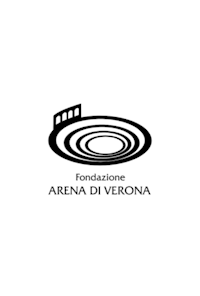
Fondazione Arena di Verona
Verona, Veneto, Provincia di Verona, Italy | Company
Séria
Filtre
Žáner
Lokalita
Hudobné diela
Skladatelia
Scénický režisér
Dirigent
Obsadenie/Posádka
Súbor
Festival
Orchester
Refrén
Jazyk
Miesto konania
Titulky
Nadchádzajúce predstavenia Dnes ďalej
Minulé vystúpenia 1983 – včera
Oratorio / Orchestral
ConcertDvojitý/Trojitý programMatinéeProgram 2 funguje5° Concerto | Lloyd Webber Requiem, RachmaninoffLloyd Webber
Fondazione Arena di VeronaPozrite si program, herecké obsadenie a štáb
Concert
ConcertDvojitý/Trojitý programMatinéeProgram 2 funguje4° Concerto | Brahms 2, Brahms
Fondazione Arena di VeronaPozrite si program, herecké obsadenie a štáb
Orchestral
ConcertDvojitý/Trojitý programMatinéeProgram 2 funguje3° Concerto | Brahms 1, Brahms
Fondazione Arena di VeronaPozrite si program, herecké obsadenie a štáb
Oratorio / Orchestral
ConcertMatinéeOpera
StagedNová výrobaMatinéeOpera
StagedNová výrobaMatinéeNadchádzajúce predstavenia
25Filtre
Žáner
Lokalita
Hudobné diela
Skladatelia
Scénický režisér
Dirigent
Obsadenie/Posádka
Súbor
Festival
Orchester
Refrén
Jazyk
Miesto konania
Titulky
Orchestral
ConcertDvojitý/Trojitý programMatinéeProgram 2 fungujeVstupenky
Brahms 3 / 6° Concerto, Brahms
Fondazione Arena di VeronaC: Franz Schottky
Pozrite si program, herecké obsadenie a štáb
Oratorio / Orchestral
ConcertDvojitý/Trojitý programMatinéeProgram 2 fungujeVstupenky
Brahms 4 / 7° Concerto, Brahms
Fondazione Arena di VeronaC: Eckehard Stier
Pozrite si program, herecké obsadenie a štáb
Orchestral
ConcertDvojitý/Trojitý programMatinéeProgram 3 fungujeVstupenky
Strauss Vita d’eroe / 8° Concerto, Strauss
Fondazione Arena di VeronaC: Hansjörg Albrecht
Pozrite si program, herecké obsadenie a štáb